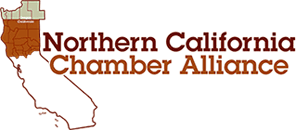Operating a successful enterprise depends on an educated and highly skilled workforce. Access to sufficient quantities of well-qualified workers, workforce development and the ability for ongoing training and advancement for existing employees is an ever-increasing challenge for employers. These factors are essential to maintaining a competitive position in a market with rapidly changing technology and increased demands for productivity. Our community is faced with severe reductions for public education programs. It is imperative to have a coordinated effort to leverage the resources available to NCCA members and within our region.
Our members play an integral role in advancing educational opportunities with our community by actively working to build awareness and supporting the educational goals of our community, region, state and nation. Our educational leaders are tasked and focused on meeting the graduation and achievement goals set by our state and federal government.
The NCCA Supports:
- Greater access to higher education and a variety of programs, including industry-based training and apprenticeships, career technical education, continuing education, and the necessary funding for facilities to support that access.
- Greater dialogue to improve the process and system of adequately funding facility construction and improved learning environments for K-12 schools.
- Increased local control and funding flexibility.
- The prompt and timely allocation of state funding and elimination of deferral payments to local school districts and community colleges.
- Initiatives and efforts that support greater access to quality preschool, private, and charter schools.
- The reauthorization of the Workforce Investment Act to provide the necessary support for the operations of workforce development centers in the region.
- Increasing the college and career ready graduates through programs, and assessments and accountability of education standards, including, but not limited to, Completion Counts, implementation of common core state standards, implementation of A-G courses as the minimum requirement for graduation from the K-12 education, integration of Career Technical Education curriculum into the core subjects, and increased accessibility to technology, and distance and online learning.
- Improving the quality of education through investment in professional training for teachers, especially in the areas of mathematics and science, and performance evaluation and compensation systems to encourage outstanding teachers and administrators, and as a tool for evaluating, remediating, or terminating school professionals who do not perform adequately.
- Continued individual funding levels of and CAL and Pell Grants, with appropriate levels of accountability.
- The retraining and professional development of the adult workforce to meet the changing needs of the community, and expansion of programs such as Career Technical Education (CTE).
- The expansion of highly skilled programs, such as nursing and ancillary programs at the community college and university levels to ensure adequate health care staffing, and funding models, such as differential funding, to support these programs.
-
Initiatives and efforts supporting STEM/STEAM education.
